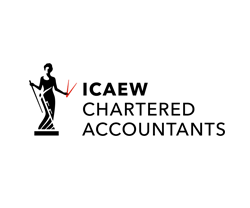April 17th, 2020
Do I need to complete a self-assessment tax return?
Now that the brand new tax year is under way, it is a good time to consider whether you need to complete and file a self-assessment tax return with HMRC for the 2019-20 tax year (covering period 06/04/19 to 05/04/20).
What is self-assessment?
Self-assessment is the system through which a taxpayer completes a tax return and pays any tax due to HMRC (or obtains a refund where tax is overpaid).
It is the responsibility of the taxpayer to inform HMRC that they think they need to complete a tax return and calculate any tax payments or refunds due.
Total taxable income is included on the tax return, including income on which tax has already been paid, as well as capital gains for the year (if any). You can also claim for any reliefs and tax allowances via the tax return. Tax already paid is included on the tax return so the final tax position can be determined.
Who needs to complete a tax return?
The following are some of the reasons why you might need to complete a tax return:
- You are self-employed as a sole trader and earn more than £1,000
- You are a partner in a business partnership
- You are a company director and receive income that is not taxed under PAYE
- You receive money from renting out a property
- You receive untaxed income in the form of tips and commission
- You receive income from savings, investments and dividends (and amounts received are not covered by your allowances)
- You receive taxable foreign income (whether or not you are UK resident. This includes non-UK resident landlords)
- You receive regular annual income from a trust or settlement, or you receive income from the estate of a deceased person and further tax is due
- You have annual income of £100,000 or more before tax
- Your income (or your partner’s income) is £50,000 or over and one of you is in receipt of child benefit (due to the high income child benefit charge – this is payable by the higher earner, regardless of who was in receipt of the child benefit payments)
- You have capital gains
HMRC have an online tool to help you check whether you need to send a self-assessment tax return. This can be accessed here.
If a notice to file a tax return has been issued by HMRC, then you will either need to file a return or ask them to consider withdrawing it – doing nothing is not an option and will potentially lead to late filing penalties.
It is up to HMRC whether they are willing to withdraw a self-assessment tax return, but the most usual reason to request a withdrawal is because all income in the tax year has been taxed at source. HMRC will review requests to withdraw on a case-by-case basis.
Important dates and deadlines for self-assessment
31 January during the tax year – if you are liable to pay payments on account (advance payments towards the next tax year), then the first payment on account for the tax year ending the following 5 April is due. So the first payment on account for 2019-20 was due by 31 January 2020.
Payments on account do not apply to everyone in self-assessment. They only apply if your previous year’s tax bill was greater than £1,000, unless more than 80% of your previous year’s tax bill was collected at source. More information on payments on account can be found here.
5 April – this is the final day of the tax year, after which anyone who is required to file a tax return will be notified by HMRC. You may still need to file a tax return even if you have not received a notice to file from HMRC.
31 July following the end of the tax year – if you are liable to pay payments on account, then the second payment on account for the tax year ending the previous 5 April is due. So the second payment on account for 2019-20 is due by 31 July 2020.
5 October following the end of the tax year – this is the deadline for notifying HMRC of your need to file a tax return (if you have not submitted one in the previous tax year). HMRC will then issue a notice to file a tax return.
31 October following the end of the tax year – this is the deadline for filing paper tax returns. If paper tax returns are filed after this date then a late filing penalty of £100 will be charged, regardless of whether or not you have tax to pay. (If filing an online tax return, the deadline is 31 January following the end of the tax year.)
30 December following the end of the tax year – if you wish for HMRC to collect the tax you owe through your tax code, the tax return needs to be filed by this date. This is an option where the liability is less than £3,000 and you pay tax at source through PAYE. More information on this can be found here.
31 January following the end of the tax year – this is when tax returns filed online must submitted by (although you can file before this date). So 2019-20 tax returns would be due for filing by 31 January 2021. If tax returns are filed after 31 January following the tax year, a late filing penalty of £100 will be charged, regardless of whether or not you have tax to pay.
The balancing payment of tax is also due by this date. So balancing payments for the 2019-20 tax year will be payable by 31 January 2021.
If you have to pay payments on account then the first payment would be due by 31 January. So if you have to make payments on account towards the 2020-21 tax year as a result of the final tax position for 2019-20, the first payment would be due by 31 January 2021.
If you need assistance in completing your tax returns then please feel free to get in touch.





